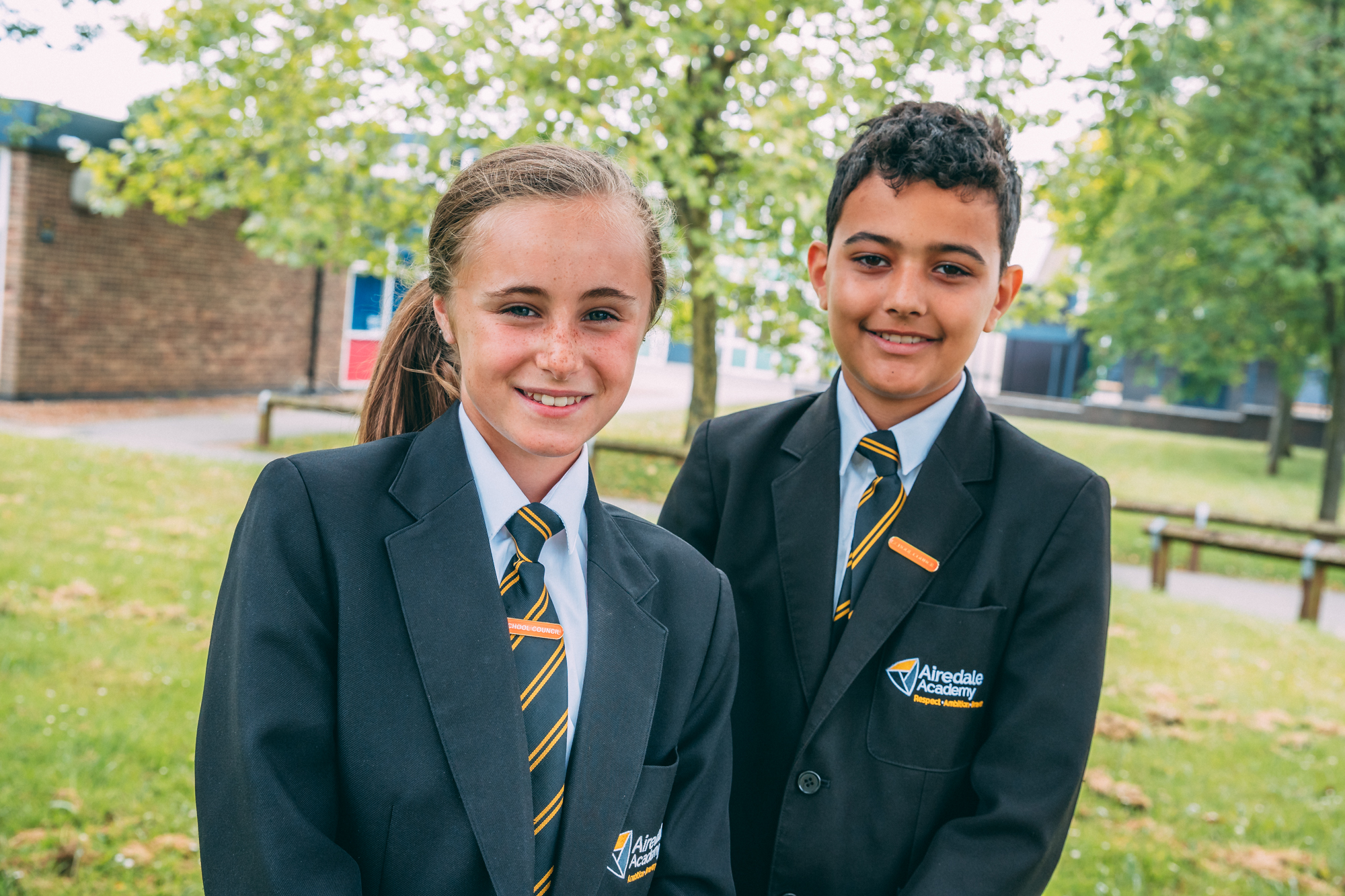Performing Arts (Dance, Drama & Musical Theatre)

Here you will find:
- Airedale Academy's Performing Arts Curriculum Intent Statement
- Curriculum Implementation Performing Arts specific
- Curriculum Impact Performing Arts specific
- Key Stage 3 (year 7, 8 & 9) Assessment Overview
- Year 7 Performing Arts Curriculum Overview
- Year 8 Performing Arts Curriculum Overview
- Year 7 Drama Curriculum Overview
- Year 8 Drama Curriculum Overview
- Year 9 Drama Curriculum Overview
- Year 11 Drama Curriculum Overview
- Year 7 Dance Curriculum Overview
- Year 8 Dance Curriculum Overview
- Year 9 Dance Curriculum Overview
- Year 10 Dance Curriculum Overview
- Year 11 Dance Curriculum Overview
- Year 9 Musical Theatre Curriculum Overview
- Year 10 Musical Theatre Curriculum Overview
- Year 11 Musial Theatre Curriculum Overview
- Year 12 Musical Theatre Curriculum Overview
- Year 13 Musical Theatre Curriculum Overview
Airedale Academy's Performing Arts Curriculum Intent Statement
INTENT
Through rigorous exploration, within Performing Arts, Airedale Academy students will develop the necessary empathetic skills to lead compassionate lives. They will study a variation of themes through different texts, genres, artists, and mediums, that present multiple facets of different cultures, societies, and histories. This empowers learners, enabling them to make connections between diverse backgrounds and widening their outlook. The practical nature of the curriculum provides a unique environment for all learners to thrive.
When devising, choreographing, or composing performances, learners are encouraged to research and develop pieces that showcase themes and issues that the students feel passionate about. We actively encourage individuals to develop a voice on a range of subject matters and teach them how to communicate this, in an interesting and imaginative manner.
Regular group work supports the development of desirable interpersonal skills. Communicating clearly, maturely, and respectfully allows for productive progression within the creative process. Crucially, students are consistently required to reflect on their work, improving evaluation and analytical skills. Working collaboratively to create and develop work enables individuals to master a wide range of transferable skills and furthermore, promotes a sense of self-worth, encourages confidence, resilience and develops relationships.
The structure of the curriculum is based on a spiral progression of learning. Through the recursive nature of the subject, pupils will re-visit the skills and techniques, through more complex challenges each year. They will regularly explore how to creatively demonstrate; voice, physicality, instrumental skills and audience awareness to deliver a performance.
At both Key stage 4, students can opt to further enhance their skills in either, Drama, Dance, Musical Theatre, Production Design or Music. The subject promotes an overall appreciation of the arts both inside and outside of the classroom developing discipline, control, and focus, allowing them to grow into well rounded adults.
Aims
Our Performing Arts curriculum will give students the opportunity to:
develop creativity through understanding the benefits of participation in the arts, performance and creativity during their school journey
develop co-operation & collaboration
develop confidence in communication through developing vocal skills, movement/physical skills and instrumental skills
explore social issues though Performing Arts to develop tolerance and understanding
be exposed to different peoples’ perspectives and emotions on issues and events
be exposed to and use subject specific vocabulary effectively
study the history and influence of different practitioners, choreographers and composers on modern day Drama, Dance and Music
develop an understanding of how to apply and analyse different stylistic qualities such as Naturalism and Physical theatre in Drama. Choreography and Motifs in Dance. Composition, Performing and Listening in Music.
develop an ability to evaluate their own and others’ work
Implementation - Design
The Performing Arts Department has a firm philosophy founded on preparing the minds of young people to cope with the outside world as well as educating students about theatre and its history. The department holds firm the 6C’s principles throughout all lessons:
1) Confidence
2) Communication
3) Co-operation
4) Creativity
5) Commitment
6) Control
Students use the above principles to explore given cultural and social issues in Drama, Dance and Music. They also learn about artistic intention with schemes based around plays, playwrights, directors, theatrical techniques, choreographers, dance practitioners/companies, composers, conductors, musicians and musical directors. The department believes strongly that the vast amount of theatrical literature, dance performances and music from other cultures to be found in the world should not be ignored.
Students are assessed on the ideas that they contribute to the process of devising and performing original work and must produce a written log to track their progress. They also perform extracts of professional repertoire that can be a combination of group performance or solo performance. In addition, students explore, research and analyse live performance and the roles and responsibilities of the practitioners involved in creating that particular area within the Performing Arts industry. Students are given the opportunity to see a piece of live professional theatre, dance or music to prepare them for this and will be encouraged to see many examples of live theatre and music throughout the course to inspire and challenge them further.
Throughout the curriculum students explore a variety of performances (text based, movement based and music based) that will challenge their understanding of life in the outside world. Students are expected to approach the course with a high level of maturity and are encouraged to embrace the holistic study of the Performing Arts. Students are assessed on the ideas that they contribute to discussion and the process of creating Drama, Dance and Music. All practical elements are assessed on students' ability to create, perform and analyse each discipline with accuracy, flair and creativity.